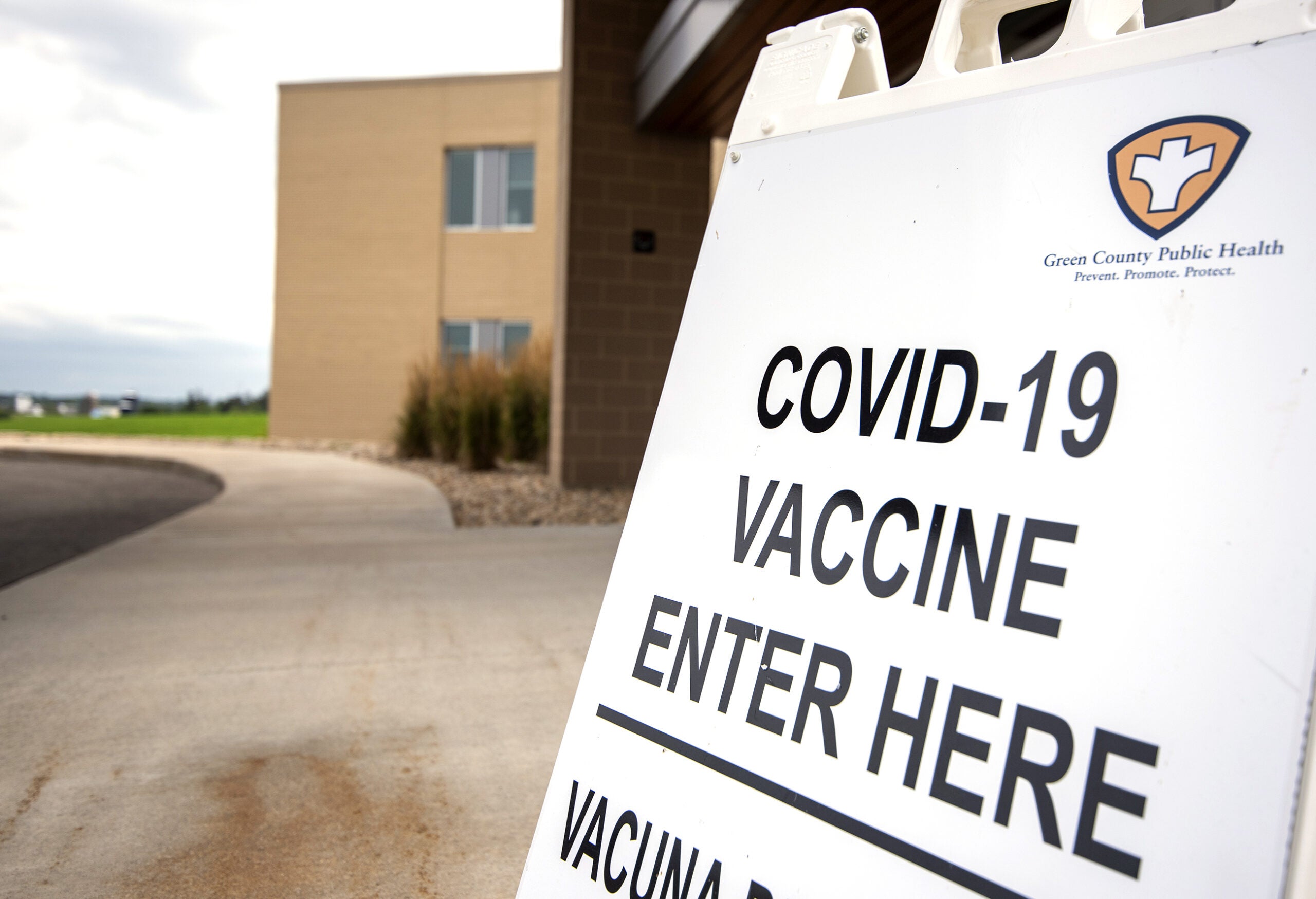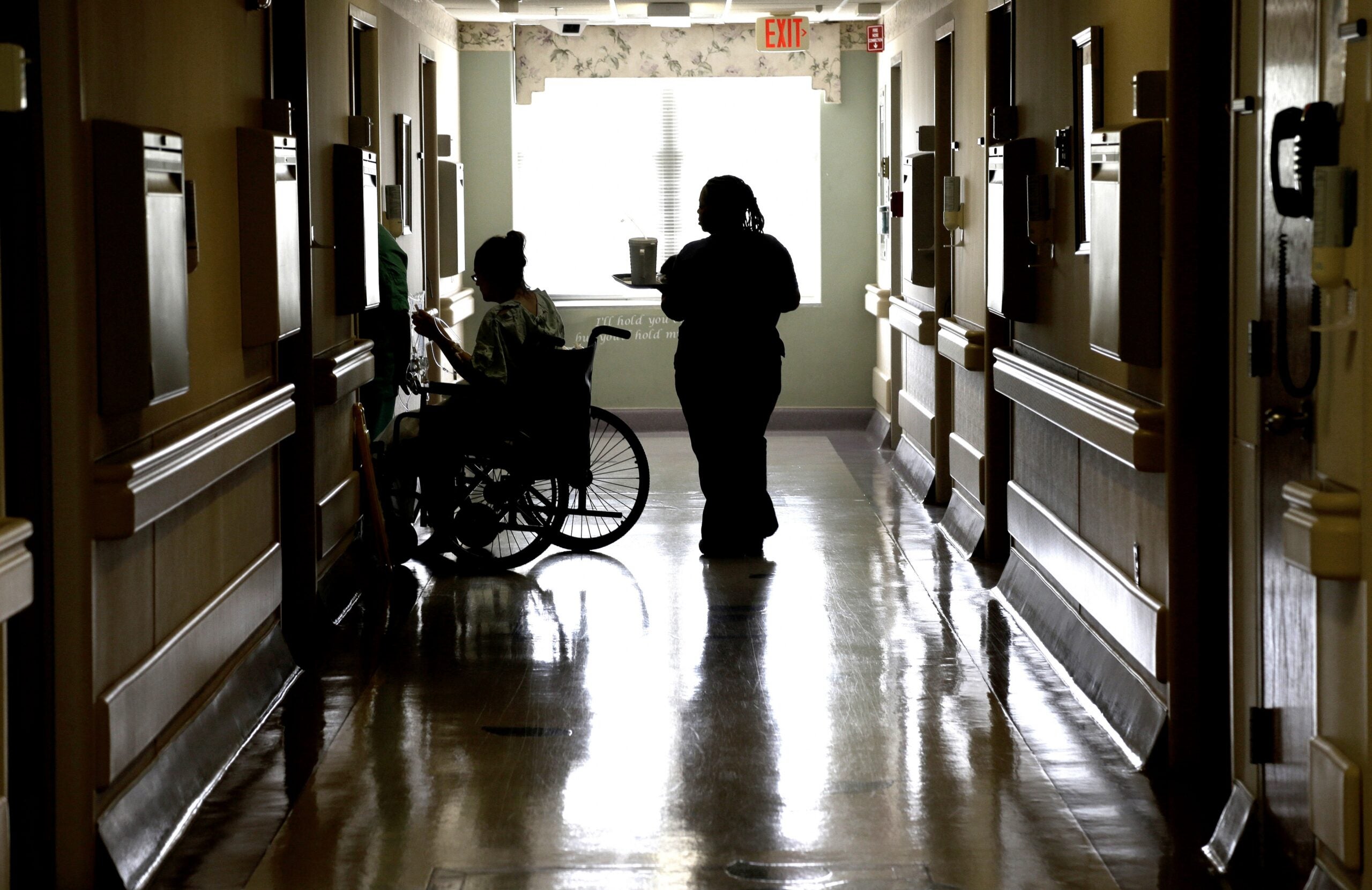Rural hospitals in Wisconsin that haven’t yet required employees to be vaccinated against COVID-19 say they expect mandates will cause many workers to quit — but those with requirements say they’ve seen very little attrition.
That’s one finding of a survey of dozens of rural hospitals in Wisconsin published this month by the Wisconsin Office of Rural Health.
The survey asked hospital executives and providers to share their experience with COVID-19 vaccine mandates. Researchers received 45 responses representing 33 rural hospitals. Twenty-two of the institutions surveyed had mandated the vaccine at the time of the October survey, while 11 had not.
News with a little more humanity
WPR’s “Wisconsin Today” newsletter keeps you connected to the state you love without feeling overwhelmed. No paywall. No agenda. No corporate filter.
A key finding: Hospitals that had not required workers to get vaccinated estimated they would lose more than 20 percent of their staff if they did so. But those with a COVID-19 vaccine requirement reported between 0 and 4 percent of staff had actually resigned as a result of them. The median figure was 2 percent, and included non-health care staff such as cafeteria or janitorial staff as well as health providers.
The data suggest that those that hadn’t implemented a mandate were overestimating the effect it would have on their workforce. But Office of Rural Health director John Eich said it’s also possible hospitals with the most vaccine-hesitant workforces were also last to implement mandates.
“It almost strikes me as a chicken-and-egg conundrum,” Eich said. “Is it that they haven’t done it yet, so they don’t realize it won’t be as bad as they think it will? Or is the reason they haven’t done it because they’ve taken the temperature, and it looks bad?”
Many health systems announced vaccine requirements for employees during the summer. In November, the Biden administration announced a new mandate requiring all hospitals that receive federal Medicare and Medicaid funding to require employees be vaccinated. That amounted to a blanket requirement for hospitals, and immediately became the subject of legal battles. Last week, a judge temporarily blocked the rule from going into effect.
More than 70 percent of adults in Wisconsin have received at least one dose of COVID-19 vaccine, and most health care institutions report vaccination rates much higher than that. But vaccine hesitancy is stronger in rural areas — and rural health care organizations may also face the tightest labor markets. That means even a low rate of attrition among staff could be a challenge at a time when health workers are facing a new spike in COVID-19 hospitalizations.
“It’s going to hurt, even if it’s only 1 percent,” Eich said. “We’re grateful that it’s only 1, 2, 3 percent. But at the same time, even that will have an impact on an already pretty fragile system.”
Still, the divergent perceptions of the size of the mandate effect is demonstrated in two anonymous responses published with the survey.
“If our facility mandates the COVID vaccine we will be severely depleted … as (staff) would all resign and therefore we wouldn’t be able to stay open,” wrote one respondent.
Another, from a rural institution that had required vaccines, wrote the effect had been “less than anticipated.”
Some respondents also noted that their organizations offered medical and religious exemptions.
Aspirus, the Wausau-based health system that extends through the Northwoods and Upper Peninsula of Michigan, did not require employees to be vaccinated until the November federal requirement was announced. At that time, CEO Matthew Heywood said in a statement that “we accept Medicare and Medicaid funds, so we must comply. It’s also the right thing to do for our patients.” Aspirus has not announced the reversal of that policy as the federal mandate is tied up in court.
Health care organizations routinely require vaccinations for everything from measles to the seasonal flu. But the COVID-19 vaccine has become uniquely politicized. Eich said he shared the concern that requiring vaccinations would lead to a backlash in rural communities.
“As a public health person, I believe mandates work,” Eich said. “But I think it’s a really hard sell in independent-minded areas like small towns and rural (areas).”
In August, some health workers protested across Wisconsin over hospital systems’ vaccine requirements. They were met with support from Senate Majority Leader Chris Kapenga, R-Delafield, who wrote in a statement that he encouraged the protests and that “it will be impossible for the hospital system to function” without the workers involved in the protests. But the protests died down quickly, and there haven’t been any instances of Wisconsin hospital systems shutting down or reversing their policies.
According to the latest data from the state Department of Health Services, Wisconsin’s seven-day average for new COVID-19 infections is at more than 3,000 per day. The state is averaging 20 deaths from COVID per day; about 9,300 Wisconsinites have died from the disease since the beginning of the pandemic. According to the latest data, fully vaccinated people were nearly 11 times less likely to be hospitalized with the disease, and more than 15 times less likely to die than those who are unvaccinated.
Wisconsin Public Radio, © Copyright 2025, Board of Regents of the University of Wisconsin System and Wisconsin Educational Communications Board.







